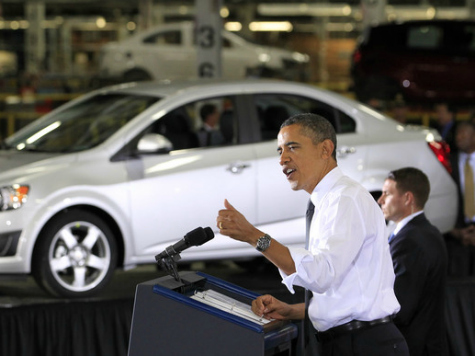American taxpayers will take a $10.5-billion loss as they rid themselves of the government’s remaining shares of General Motors Co. (GM) stock.
In 2008 and 2009, the federal government bailed out GM to the tune of $49.5 billion during what has commonly been referred to as the Great Recession. According to a Department of the Treasury press release, the final stock sale recovered only $39 billion of the investment in stock gains and interest.
Obama administration officials said that they never expected to recover all the revenue they infused into the auto-manufacturing giant, contending that the rescue was about more than the “bottom line.” He and GM Executive Dan Akerson were happy about the outcome of the bailout. Akerson said on Monday, “We will always be grateful for the second chance extended to us, and we are doing our best to make the most of it.”
Obama offered as his remarks on the bailout, “When things looked darkest for our most iconic industry, we bet on what was true: the ingenuity and resilience of the proud, hardworking men and women who make this country strong.”
A Michigan-based nonprofit, The Center for Automotive Research (CAR), likewise said taxpayers were big winners by bailing out GM, as well as Chrysler, whose sale netted a further $1.3 billion loss. Sean McAlinden, the chief economist for CAR, says that the government action saved $105.3 billion in unemployment benefits and related social program payments, as well as saved 2.6 billion jobs. McAlinden consequently views the bailout as “money well spent.”
Cato Institute senior fellow Dan Mitchell doesn’t agree with McAlinden’s conclusions. “If you only count the things that make you look good and don’t count the things that make you look bad, any investment will look good and any investment will be profitable,” Mitchell said.
He argued that CAR’s analysis doesn’t take into consideration the lost value of adjustments to business strategy that would have been made in absence of the bailout. If the auto companies were not bailed out, their existing business models may have been stronger now. “[Adjustments such as] more meaningful concessions in labor costs and work rules would have put the auto industry on a sounder footing,” Mitchell explained.

COMMENTS
Please let us know if you're having issues with commenting.